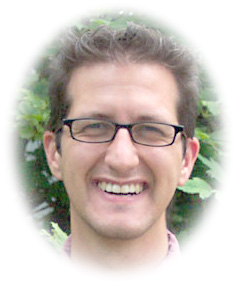The Unexpected |

by Jarrod Shapiro, DPM
Joined practice July 2006 of
John K Throckmorton, DPM
Lansing, Michigan
|
How do you handle the unexpected? Ever thought,
“I'm the type of person who thrives on sudden and unforeseen events?” Do you search out the unknown or do you prefer routine,
safety, and comfort? I would suggest that for the majority of us as physicians, we're intellectually curious and desire some level of the
unanticipated in our lives. As surgeons we have to be somewhat less risk averse than the average person. Does it not take some guts (lunacy?) to open up another
human being and fool around with their anatomy?
On the other hand, the unexpected can be very difficult to deal with for a physician. Let's take the office as a case in point. The other day I was
surprised to find a patient of my boss' who was scheduled for a verruca electrocautery. |
|
Not a big deal, except my boss had left town on vacation without informing me of this patient who had taken this specific day off of work for her procedure. It turned out she
had 8 verruca plantaris lesions on different areas of both feet. I spent the next hour scrambling to stay on schedule while performing her procedure. This unexpected event
would have flowed more smoothly if preplanning were involved.
How about surgery? I think most of you would agree the last thing you want in the OR is the unexpected. How many times have our attendings told us to prepare for the
unexpected? What do you do if your internal fixation fails during a bunionectomy? Do you panic and start screaming? No; you calmly reassess the situation and throw a K wire or try another screw (or any of a number of other solutions). Do you walk into the OR without any thought as to the patient's general health,
allergies, or instruments required to complete a procedure? Of course not. You prepare for the unexpected.
So, how do you prepare for the unexpected in your professional life? How about your personal life? My former residency director usually had 20 items hovering around him.
I asked him once how he handled all of his varied responsibilities with such apparent ease. His answer?
PLANNING.
Let's look at a few ideas to battle the unexpected.
- Personal
• As much as possible, try to plan your personal time with friends and family. Plan a date with your wife or a weekend vacation with your
husband. As a resident you have precious little time to yourself, and as a new practitioner you'll be putting in the time to build your practice. Make your personal time
as productive and fulfilling as possible with preplanning.
• If you like technology use a PDA. If you're a technophobe, try a personal calendar. They both work.
• Keep your desk/filing system organized. How many of us have wasted 30 minutes looking for that important article buried in the stack
of those unread articles you've been meaning to get to?
• Don't procrastinate. Don't wait for the last minute to prepare that lecture or write up that case study that's waiting.
|
- Office
• I like to review my patients' charts at least one day before their scheduled appointments, so I have a game plan when I
walk into the exam room.
• Be sure your staff is trained well to handle routine issues. For example, the set up for a nail avulsion and matricectomy is pretty
standard. You should be able to block the toe, walk out, see someone else while your staff preps the room and patient, and then you return to do the procedure
without stopping to gather more supplies. The PRESENT folks have a great lecture about staff training. Watch it and listen!
|
- Surgery
• Prepare for your cases ahead of time by reading in advance. There's no shortage of excellent texts on surgical procedures. And
there's no excuse for being unprepared for surgery.
• Consider alternative methods for doing tasks. What alternatives can you think of for a pair of Senn retractors? How about fixation
methods? What if your saw fails? Can you use an osteotome and mallet?
• Be patient. For the attendings reading this, be patient with your residents. Remember, they’re still learning.
For the residents reading this, be patient with yourself. Remember, you’re still learning.
|
Under the right circumstances the unexpected is exciting and often life enhancing. With a little preplanning your day might go that much smoother.
Talk to me!

Jarrod Shapiro, DPM
PRESENT New Docs Editor
[email protected] |
|
GRAND SPONSOR
This program is supported by
an educational grant from
STRATA DIAGNOSTICS

MAJOR SPONSORS |
|
|
|
|
|
|
|
|
|
|
|
|
|
|
|
|
|
|
|
|
|
|
|
|
|
|
|
|
|
|
|
|
|
|
|